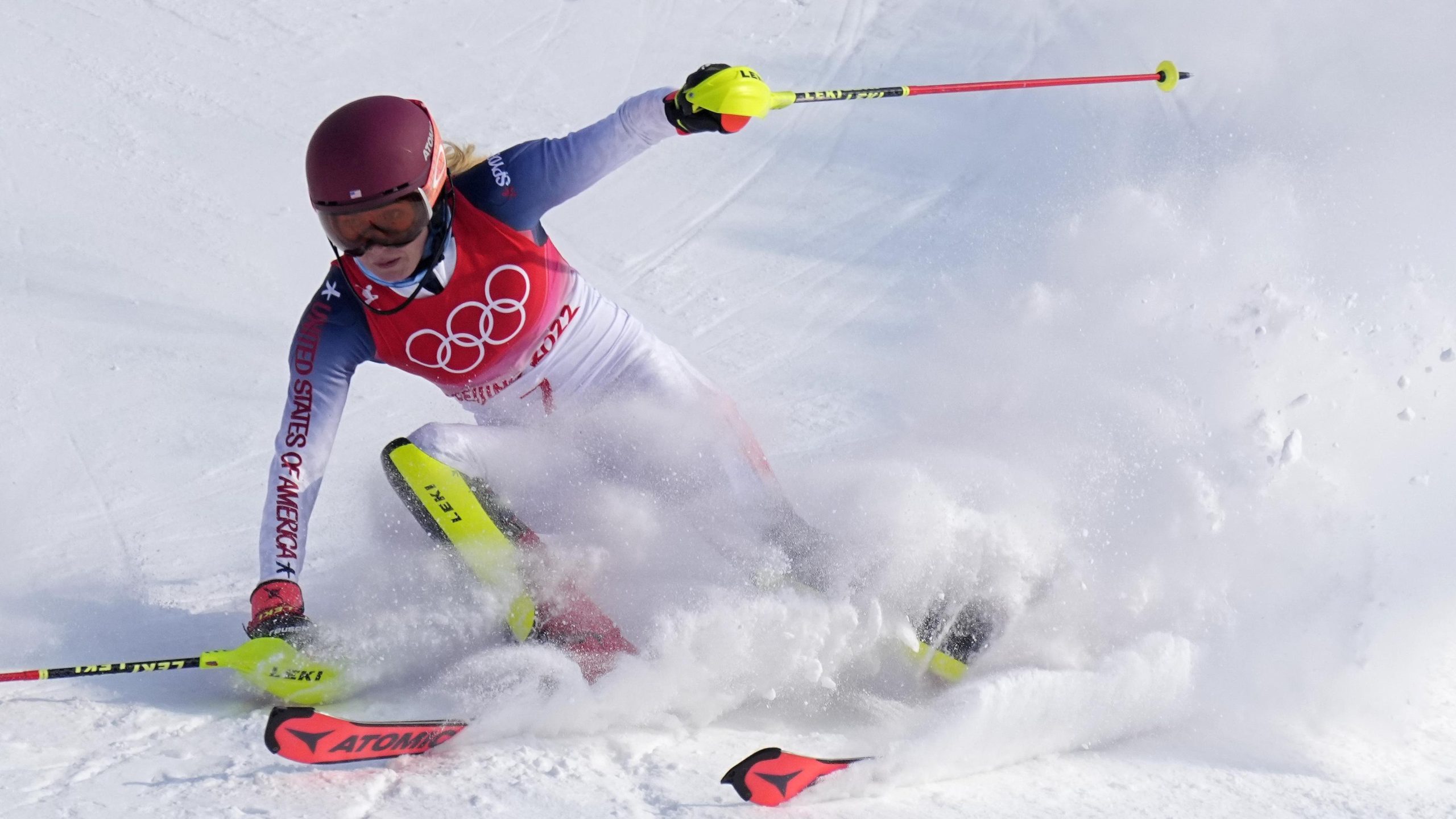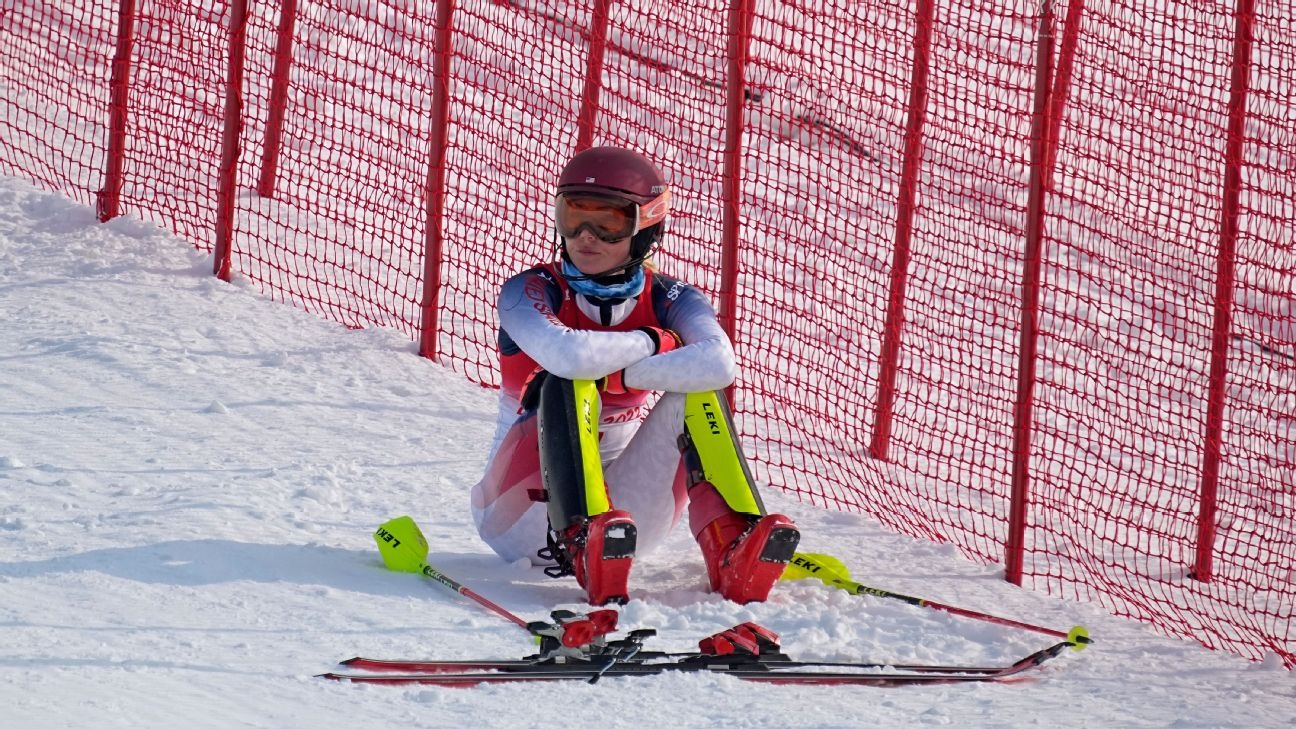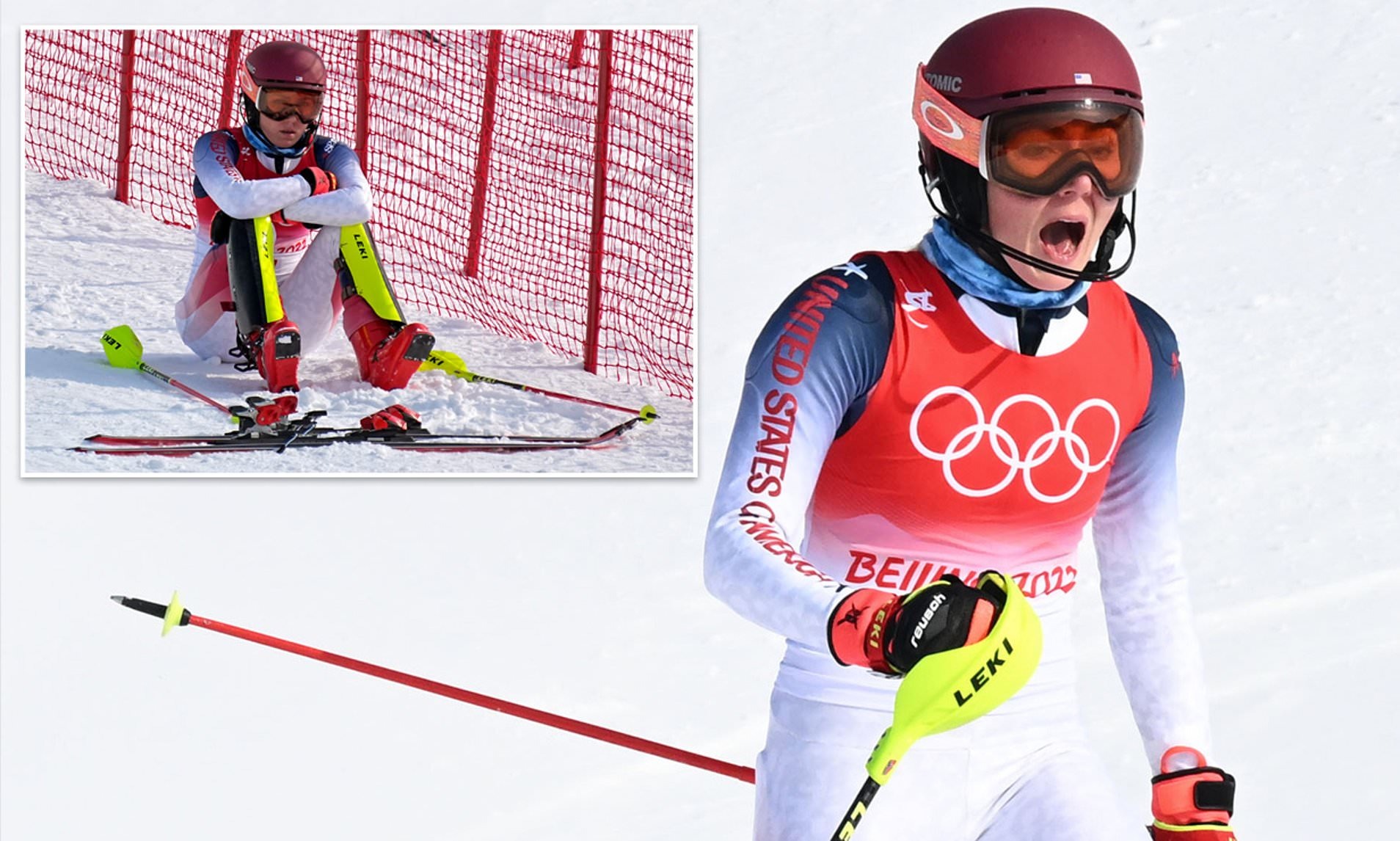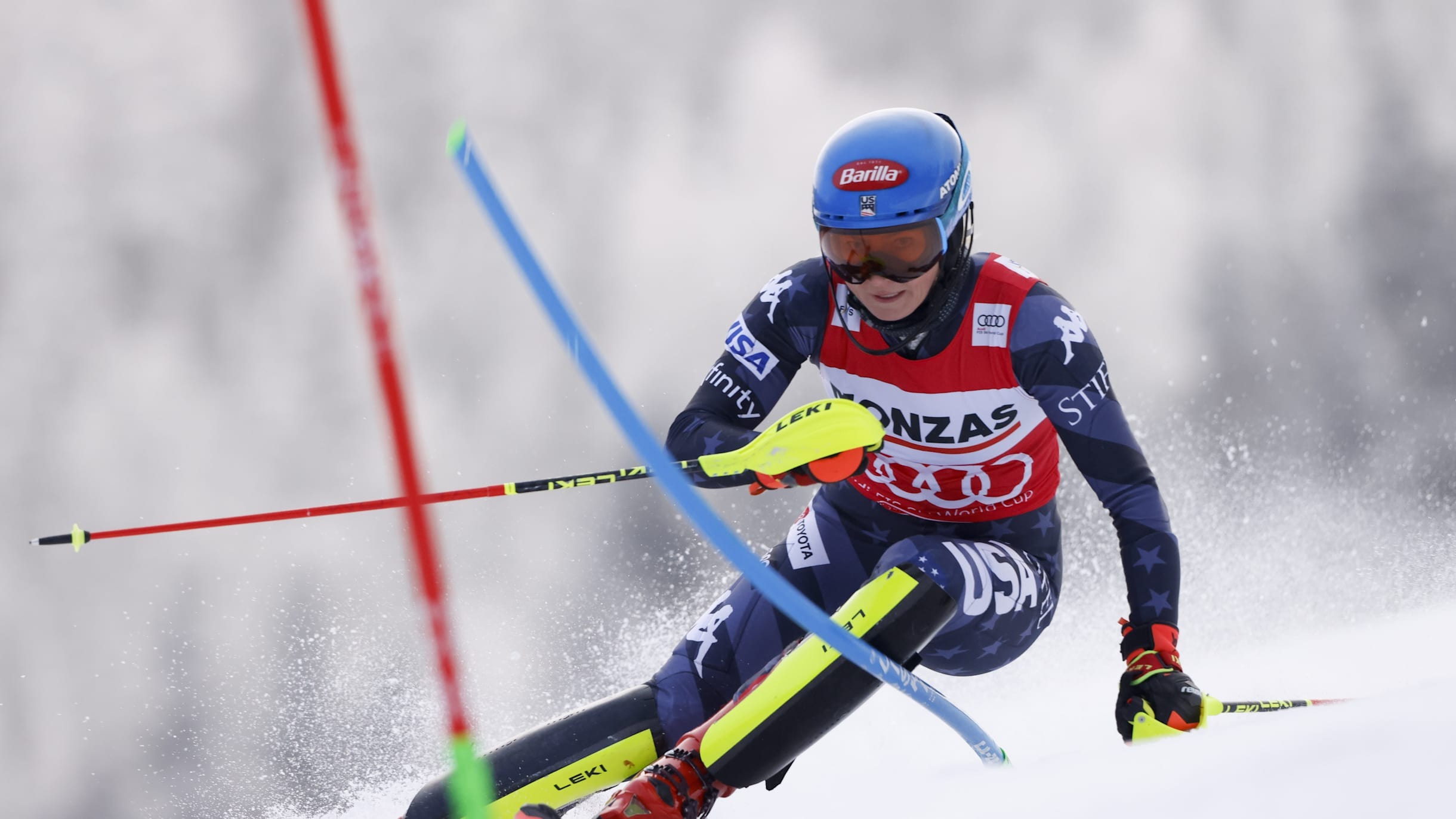BEIJING (AP) – Two-time Olympic champion Mikaela Shiffrin’s second race at the Beijing Games went even faster than the first.
The 26-year-old American slipped about five seconds off the first lap of the slalom on Wednesday, putting him out of the race. It was even less time than his descent of about 10 seconds in the first round of the giant slalom on Monday.
“I pushed out of the start. I wanted to ski as hard as I could,” she said. “I slipped a little into a turn and just did not leave the place for myself to make such a mistake. I planned to go to the most aggressive line, the most difficult line for skiing.”
This time, Shiffrin stayed for a while next to one of the goals she missed — on a course defined by her coach, Mike Day— before walking to the side. She sat down in the snow and lowered her head on her bent knees, the image of disappointment.

Soon, an employee of the US team lay down next to Shiffrin and put his arm around her shoulders.
When asked after how she felt, Shiffrin said, “Pretty awful, yeah. But it will not be terrible forever. I’m feeling pretty weak right now.”
Shiffrin came to the Winter Olympics in China as one of the biggest stars of her sport — or any sport — a sometimes dominant alpine skier who has been in the spotlight since she was a teenager.
She said she planned to participate in the five individual races at the Yanqing Alpine Ski Center, and a gold medal would make her the second female skier to win at least one to three games in a row.
So far, however, Shiffrin is 0: 2, not even able to finish a significant part of the first stage of one or another of her first two trials. Slalom and giant slalom are her specialty, technical races that combine the times of two descents, and she already has an Olympic gold medal from each.
It’s no wonder she didn’t win a medal this week, let alone gold. As Shiffrin herself so often reminds everyone, anything can happen on a given day. What is really surprising is that she was so far away from her game, so immediately, during each of her two trips along the route known as Ice River.

“It’s really sad. It’s never fun to go out,” said Swedish skier Anna sWenn Larsson. “I know the feeling.”
Shiffrin’s next race could be the Super-G on Friday, although immediately after her slalom problem, she gave the impression that she could skip this race. She has never competed in a super-G at the Olympics, but won at the World Championships.
What is also remarkable in all this is that Shiffrin is known for being as constant on the runway, as a metronome who never misses a smack. Maybe on a certain day she is slower than other athletes — no one is perfect – but what makes her so rare is a maneuver so as not to even go down the hill.
Shiffrin has been sharing her most devoted thoughts over the past few months through social media and traditional media. They discussed how she did to empathize seeing athletes at the Tokyo Olympics like gymnast Simone Biles and swimmer Caeleb Dressel share their feelings about the pressure and expectations last year.

And Shiffrin was open about the difficult task of tracking after the accidental passed away of her father, Jeff, in February.
After her rapid descent in the giant slalom on Monday — the first time she has not competed in this discipline in more than four years — Shiffrin found that her preparation for Beijing was not ideal. A back problem prevented her from training in October and November. And a action with recent time at the end of December.

